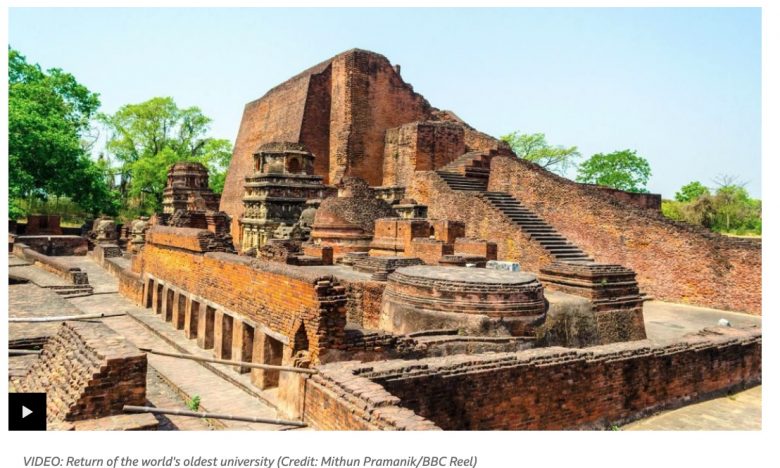INDIA, February 23, 2023 (BBC by Sugato Mukherjee): Founded in 427 CE, Nalanda is considered the world’s first residential university, a sort of medieval Ivy League institution home to nine million books that attracted 10,000 students from across Eastern and Central Asia. They gathered here to learn medicine, logic, mathematics and – above all – Buddhist principles from some of the era’s most revered scholars. As the Dalai Lama once stated: “The source of all the [Buddhist] knowledge we have, has come from Nalanda.” In the more-than seven centuries that Nalanda flourished, there was nothing else like it in the world. The monastic university predates the University of Oxford and Europe’s oldest university, Bologna, by more than 500 years. What’s more, Nalanda’s enlightened approach to philosophy and religion would help shape the culture of Asia long after the university ceased to exist.
Interestingly, the monarchs of the Gupta Empire that founded the Buddhist monastic university were devout Hindus, but sympathetic and accepting towards Buddhism and the growing Buddhist intellectual fervor and philosophical writings of the time. The liberal cultural and religious traditions that evolved under their reign would form the core of Nalanda’s multidisciplinary academic curriculum, which blended intellectual Buddhism with a higher knowledge in different fields. The ancient Indian medical system of Ayurveda, which is rooted in nature-based healing methods, was widely taught at Nalanda and then migrated to other parts of India via alumni. Other Buddhist institutions drew inspiration from the campus’ design of open courtyards enclosed by prayer halls and lecture rooms. And the stucco produced here influenced ecclesiastical art in Thailand, and metal art migrated from here to Tibet and the Malayan peninsula. But perhaps Nalanda’s most profound and lingering legacy is its achievements in mathematics and astronomy.
The archaeological remains of Nalanda are now a Unesco World Heritage site. In the 1190s, the university was destroyed by a marauding troop of invaders led by Turko-Afghan military general Bakhtiyar Khilji, who sought to extinguish the Buddhist center of knowledge during his conquest of northern and eastern India. The campus was so vast that thefire set on by the attackers is said to have burned for three months.
Much more of Nalanda’s interesting history at source.
https://www.bbc.com/travel/article/20230222-nalanda-the-university-that-changed-the-world

